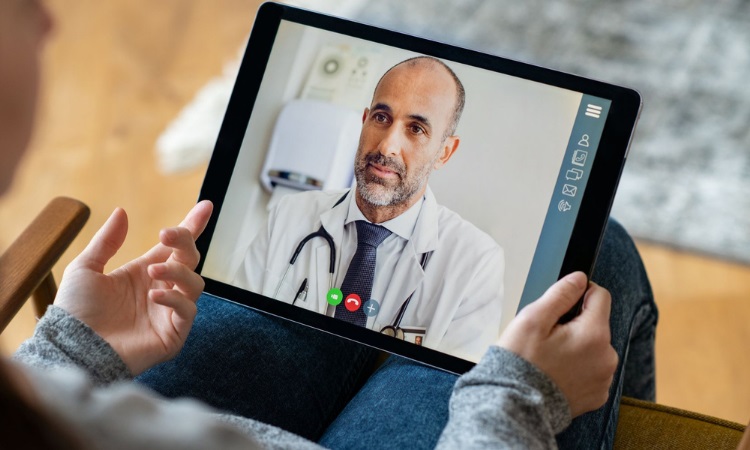Personal growth is a lifelong journey. Everyone wants to become a better version of themselves—more confident, skilled, and balanced. But knowing where to start can be challenging. That’s where self-development programs come in. These programs provide guidance, structure, and tools to help you grow mentally, emotionally, and professionally.
Whether you want to improve your communication skills, boost productivity, enhance emotional intelligence, or simply lead a more fulfilling life, self-development programs are a smart way to achieve your goals.
In this article, we’ll explore what self-development programs are, why they are essential, and which types are most effective for personal growth in 2025.
Why Self-Development Programs Matter
Self-development programs go beyond simple advice or motivational speeches. They are structured learning experiences designed to help you:
- Gain clarity on goals: Identify what truly matters to you.
- Build essential skills: Improve communication, leadership, or problem-solving.
- Boost confidence and self-awareness: Understand your strengths and weaknesses.
- Develop healthy habits: Adopt routines that improve mental and physical well-being.
- Stay accountable: Programs often provide coaching, mentorship, or community support.
Investing in your growth is one of the best ways to ensure long-term success and satisfaction in life.
Types of Self-Development Programs
There are many self-development programs available, ranging from online courses to in-person workshops. Here are some popular types:
1. Online Courses
Online courses are flexible, affordable, and accessible from anywhere. Platforms like Coursera, Udemy, and Skillshare offer programs on:
- Time management and productivity
- Emotional intelligence
- Public speaking and communication
- Leadership and career growth
Why it works: You can learn at your own pace and revisit materials whenever you need.
2. Workshops and Seminars
Workshops and seminars are often live sessions, either online or in-person. They focus on interactive learning, group activities, and practical exercises.
Examples include:
- Confidence-building workshops
- Mindfulness and meditation seminars
- Personal finance or entrepreneurship workshops
Why it works: Real-time interaction and feedback help retain knowledge better.
3. Coaching Programs
Personal or life coaching provides one-on-one guidance. Coaches help you set goals, overcome obstacles, and create actionable plans for growth.
- Career coaches: Help with promotions, job changes, or skill development.
- Life coaches: Focus on mindset, motivation, and personal challenges.
Why it works: Customized advice accelerates growth and ensures accountability.
4. Self-Help Books and Guides
While not structured programs, reading self-help books or guides can be a simple, low-cost way to start your journey. Popular topics include:
- Habits and routines
- Mindfulness and mental health
- Success and productivity strategies
Why it works: Books allow you to learn from experts and apply strategies gradually.
5. Membership Communities
Some programs offer access to communities of like-minded individuals. These communities provide motivation, support, and networking opportunities.
Examples:
- Online mastermind groups
- Personal development forums
- Accountability groups for habit tracking
Why it works: Surrounding yourself with motivated people encourages consistent progress.
Key Benefits of Self-Development Programs
1. Improved Self-Awareness
Knowing your strengths, weaknesses, and values is the foundation of personal growth. Programs often include exercises to help you reflect and gain clarity.
2. Better Goal Setting
Structured programs teach effective goal-setting techniques like SMART goals (Specific, Measurable, Achievable, Relevant, Time-bound) to track your progress.
3. Enhanced Skills
Many programs focus on tangible skills such as communication, leadership, negotiation, or digital literacy, which are valuable in both personal and professional life.
4. Increased Motivation
Learning in a structured environment and seeing progress keeps motivation high. Peer support or mentor feedback can also boost commitment.
5. Healthier Habits
Self-development programs often include routines for mental and physical well-being, such as meditation, exercise, or journaling, which improve focus and reduce stress.
How to Choose the Right Program
With so many options available, choosing the right self-development program can feel overwhelming. Consider these tips:
- Define Your Goals: Are you looking to improve confidence, productivity, career skills, or emotional well-being?
- Check Credentials: Ensure the program is led by experienced professionals or reputable organizations.
- Format Preference: Decide whether you prefer online, in-person, or hybrid programs.
- Budget and Time: Some programs are free, while others require a significant investment of money and time.
- Reviews and Testimonials: Look for feedback from past participants to gauge effectiveness.
Tips to Maximize Your Growth
- Commit to Daily Learning: Even 20–30 minutes a day can lead to noticeable improvement.
- Apply What You Learn: Knowledge is only valuable if you implement it in real life.
- Track Your Progress: Keep a journal or planner to monitor your growth.
- Stay Consistent: Personal growth is a long-term journey, not a quick fix.
- Seek Feedback: Constructive criticism helps identify blind spots and areas for improvement.
Popular Self-Development Areas in 2025
- Emotional Intelligence: Understanding emotions to improve relationships and decision-making.
- Time Management and Productivity: Tools and habits to get more done efficiently.
- Mindfulness and Meditation: Techniques to reduce stress and enhance focus.
- Career and Professional Growth: Upskilling, networking, and personal branding.
- Financial Literacy: Managing money wisely to secure long-term stability.
Final Thoughts
Self-development programs are powerful tools for anyone serious about personal growth. They provide structure, accountability, and the knowledge needed to overcome challenges and achieve goals.
Remember, personal growth is a journey, not a destination. The right program can guide you, but consistent effort, reflection, and application are key to seeing real change.
Invest in yourself today, and the benefits will last a lifetime.
FAQs
1. What is a self-development program?
A self-development program is a structured course, workshop, or plan designed to help individuals improve skills, mindset, and habits for personal growth.
2. Can beginners benefit from self-development programs?
Absolutely. Programs are designed for all levels, including beginners, and provide guidance to start and grow gradually.
3. Are online programs as effective as in-person programs?
Yes. Online programs offer flexibility and access to expert guidance. Consistency and application of lessons determine effectiveness.
4. How long does it take to see results from self-development programs?
Results vary, but consistent effort over weeks or months typically leads to noticeable improvement in skills, mindset, or habits.
5. Do self-development programs cost a lot of money?
Not necessarily. Many programs are free or low-cost, including online courses, webinars, and self-help guides. Paid programs may offer personalized coaching or advanced resources.




